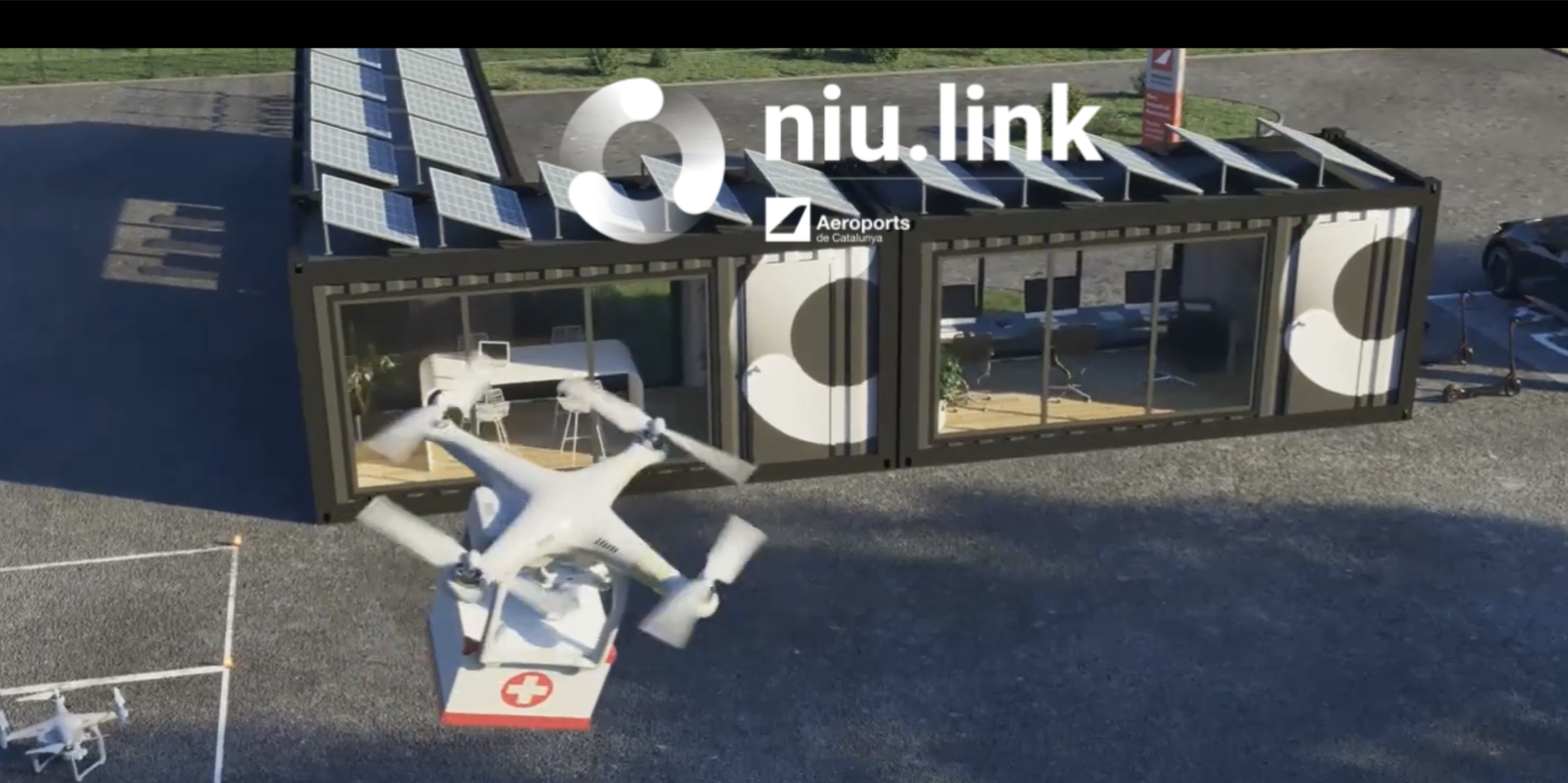Innov’ATM takes part into a European project to test cross-border U-spaces with a consortium lead by Airports of Catalunya
The project, named Niu.link, was submitted to the call for projects of the Interreg VI Program – Spain-France-Andorra POCTEFA 2021-2027.
The project has obtained a total of nearly two million euros and is formed by: Airports of Catalonia, PildoLab, Pirineos Drone, the University of Lleida, the Open University of Catalonia, the University of Barcelona, Innov’ATM and Instadrone.
Context of the project:
This Niu.Link project is part of the POCTEFA program that finances cross-border cooperation projects designed and managed by entities from both sides of the Pyrenees (France, Andorra, and Spain) that improve the quality of life of the territory in a sustainable, smart, and inclusive way.
With the Niu.Links project, the goal is to create UAV air corridors for cross-border operations to transport biosanitary material. At the same time, it also aims to plan possible new vertiports for testing these corridors.
Airports of Catalonia, which has already won other European projects for the development of regulated and coordinated integration systems for safe and efficient access to airspace for UAVs, has developed a consortium for this new project that aims to be a further step in the development of the UAV world.
Goal of this European Project
The goal of this consortium is to achieve these two cross-border corridors (between hospitals or primary care centers in the territory and clinical laboratories) to make transports more sustainable and agile for people living in mountain territories.
An experimental vertiport will also be executed in Lleida-Alguaire to study transport between corridors and will be replicated in different formats depending on the territory where the vertiport is located.
The consortium’s goal is for these services to benefit hospitals, health centers, laboratories, and citizens of the Pyrenees in territories affected by depopulation processes that require an advanced solution in biosanitary transport.
Plans include existing transport cases such as the transport between Puigcerdà hospital, a reference in cross-border cooperation, with the Inovie laboratory in Saillagouse; or the services between the hospital of La Seu d’Urgell and the hospital of Andorra.
The development of services and corridors is complemented by the development of an experimental vertiport at the Lleida airport that allows integrating technologies for corridors and attracting industry from the sector.
This initiative will promote the Pyrenees as a European innovation and knowledge hub in the development of UAM technologies and will contribute to the decarbonization of existing mobility services that are now done by road.
Consortium organization
To implement this project, Airports of Catalonia leads a consortium with:
PildoLabs: will offer the study of the operations of the corridors, developing UAV functionalities in airspace to allow their integration so that the corridors are safe operations.
Pirineos Drone: a company specializing in drone management for inspections. It has been especially developed in local logistics projects in rural and mountain environments.
Open University of Catalonia, Department of Economics and Business Studies: will analyze the viability of implementing the logistic corridors that allow supplying sanitary material in cross-border mountain areas.
The University of Lleida, Department of Geography, will study aspects related to the area studies, conducting territorial analysis and mapping of the proposed corridors.
The University of Barcelona will prepare a report based on the quantification of the economic impact and social benefits of cross-border biosanitary transport services with UAV technologies for the territory.
Instadrone: a French company that also develops sales, distribution, and integration of drone technologies. It has a service that performs the entry of biomedical samples between Puigcerdà hospital and Inovie Biomedilab in Saillagouse.
Innov’ATM, will provide innovative solutions for airspace safety and will offer its experience in ATM, UTM, and drone detection.



